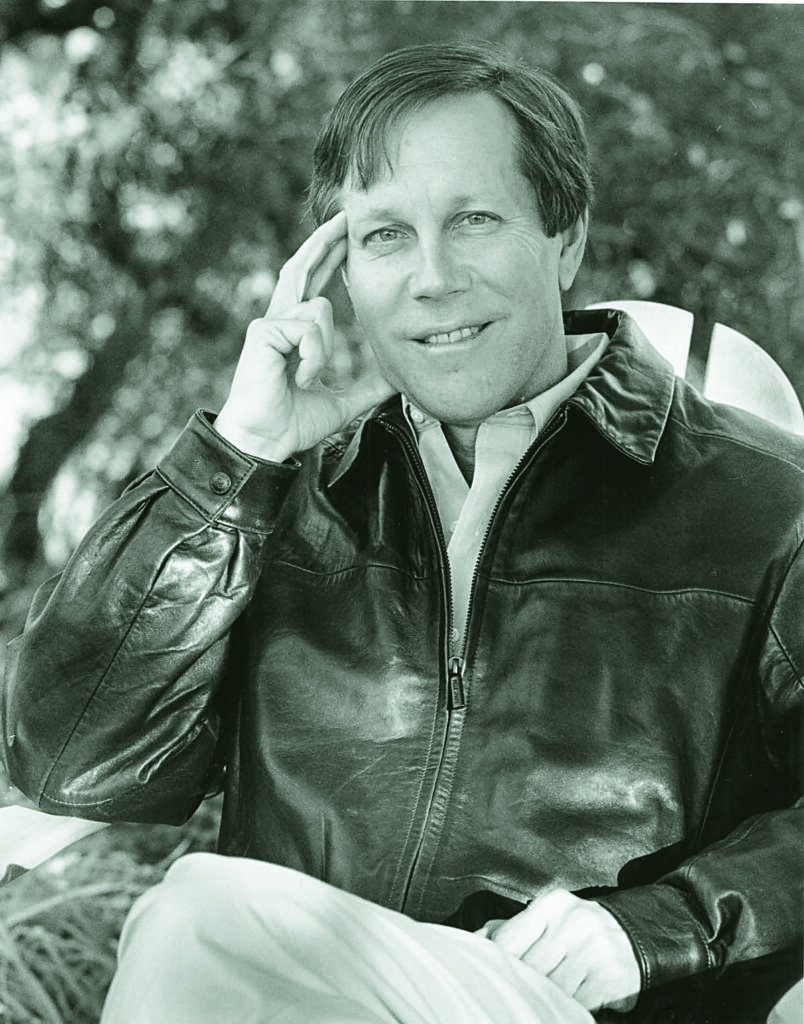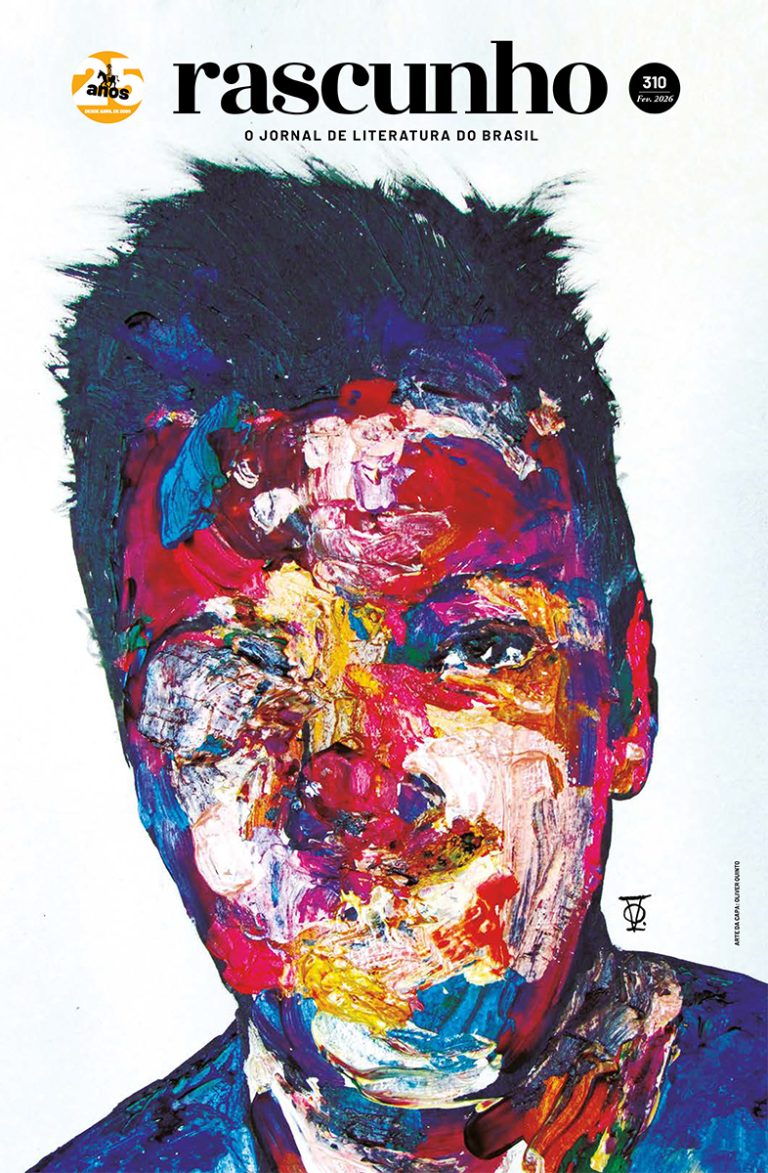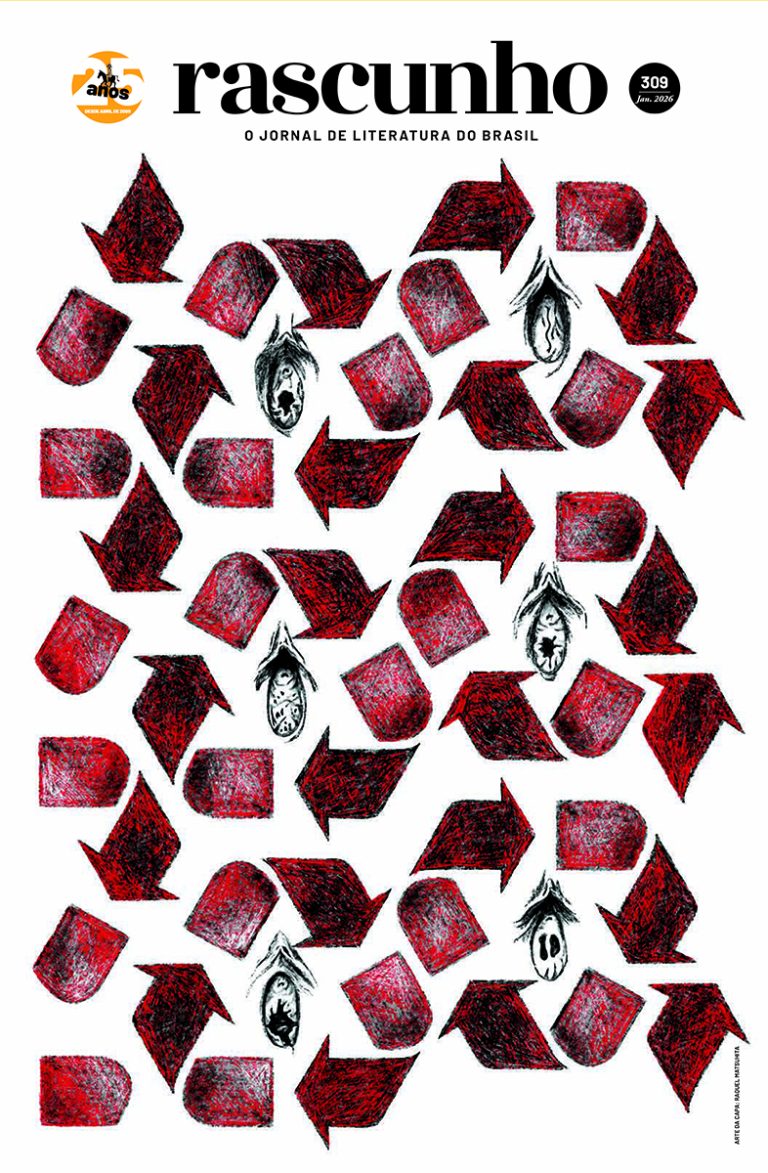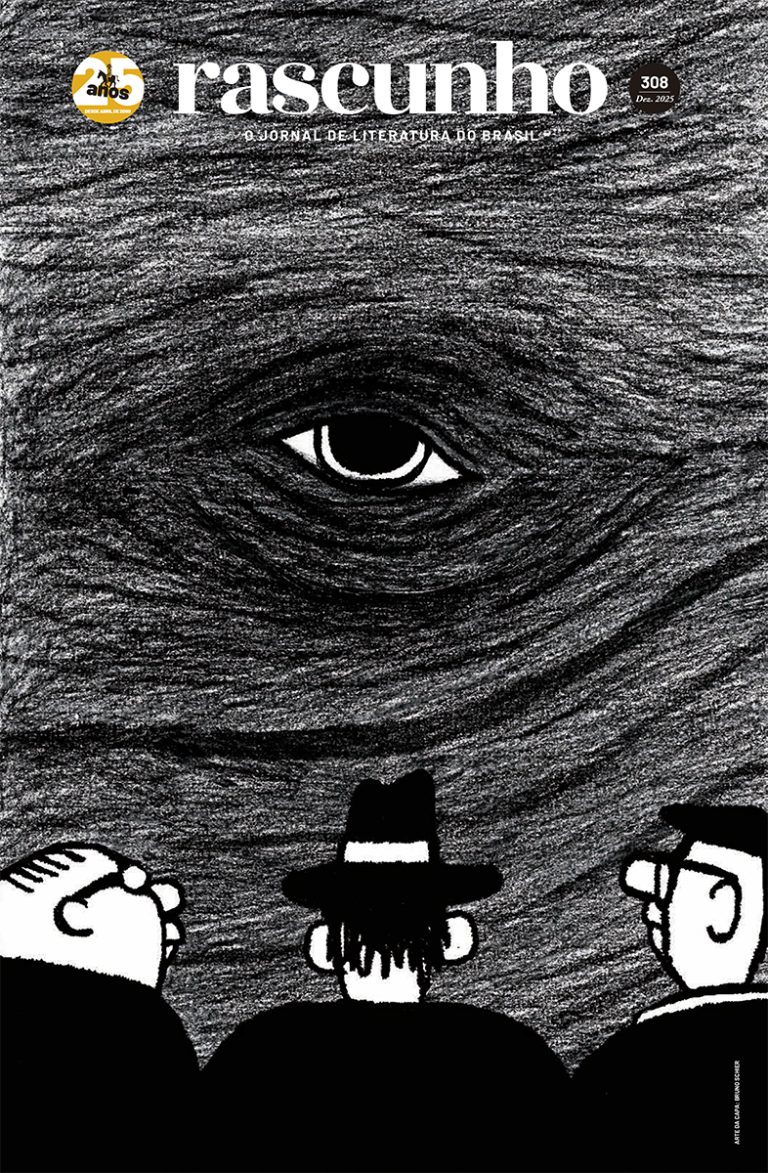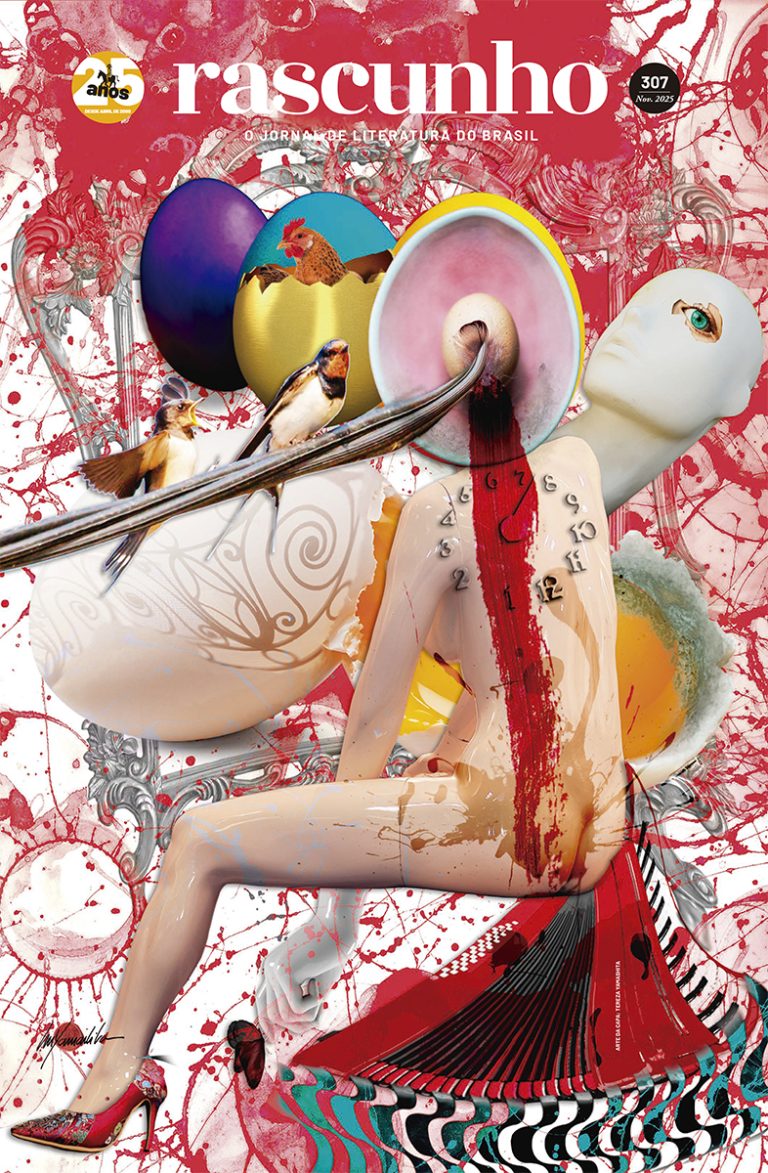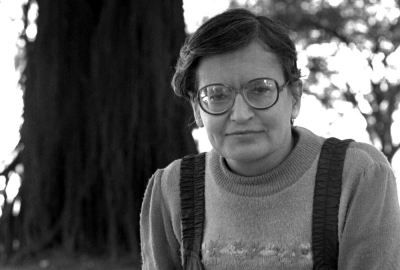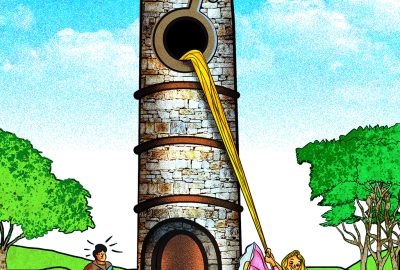O LUNÁTICO, O AMANTE E O POETA
Nossas fábulas são falsas ou verdadeiras,
Mas esse tampouco é o ponto. Tecemos
A trama da nossa existência sem palavras
E a estória certa nos diz quem nós somos.
São possivelmente as palavras que nos convocam.
A fábula é amiúde mais sábia do que o fabulista.
Mais nua e crua é a verdade que vestimos.
Então, deixe-me trazer esta estória para nossa cama.
O mundo, eu digo, depende de um feitiço
Dito a cada noite pelos amantes ínscios
De sua própria magia. Na inocência
Ou na agonia as mesmas palavras devem ser ditas,
Ou a lua irascível escurecerá no céu.
A noite ainda cresce. Os ventos da aurora expiram.
E se eu estiver errado deve ser por pouco.
Sabemos que nossa própria existência veio do toque,
A luxúria convocando a nova alma à vida.
E a tímida língua do amor desperta em tal fogo —
Carne contra carne e secreto murmúrio —
Como se o único desígnio do desejo
Fosse revelar suas infinitas dobras.
E assim, meu amor, somos dois lunáticos,
Secretários da lua sem palavras,
Deitados acesos, juntos ou separados,
Transcrevendo cada toque ou dolorida ausência
Em nosso interminável, íntimo parolear,
Corpo a corpo, nus para a noite,
Vestidos apenas com a nossa voz.
THE LUNATIC, THE LOVER, AND THE POET
The tales we tell are either false or true,
But neither purpose is the point. We weave
The fabric of our own existence out of words,
And the right story tells us who we are.
Perhaps it is the words that summon us.
The tale is often wiser than the teller.
There is no naked truth but what we wear.
So let me bring this story to our bed.
The world, I say, depends upon a spell
Spoken each night by lovers unaware
Of their own sorcery. In innocence
Or agony the same words must be said,
Or the raging moon will darken in the sky.
The night grow still. The winds of dawn expire.
And if I’m wrong, it cannot be by much.
We know our own existence came from touch,
The new soul summoned into life by lust.
And love’s shy tongue awakens in such fire —
Flesh against flesh and midnight whispering —
As if the only purpose of desire
Were to express its infinite unfolding.
And so, my love, we are two lunatics,
Secretaries to the wordless moon,
Lying awake, together or apart,
Transcribing every touch or aching absence
Into our endless, intimate palaver,
Body to body, naked to the night,
Appareled only in our utterance.
…..
PLANTANDO UMA SEQUOIA
Eu e meus irmãos trabalhamos a tarde inteira no pomar,
Abrindo esse buraco, pondo você nele, embalando com cuidado o solo.
A chuva enegrece o horizonte, mas ventos frios seguram-na sobre o Pacífico,
E o céu sobre nós se torna fosco e cinza
De um ano que encontra seu fim.
Na Sicília um pai planta uma árvore pelo nascimento de seu primeiro filho —
Uma oliva ou figueira — sinal de que a terra suporta uma vida a mais.
Eu teria feito o mesmo, aumentando com orgulho o estoque do pomar de meu pai,
Um rebento verde crescendo entre os ramos torcidos das maçãs,
A promessa de um novo fruto em outros outonos.
Mas ajoelhamo-nos hoje no frio para plantar você, nossa nativa gigante,
Desafiando a exequível tradição de nossos pais,
Enrolando em suas raízes uma mecha de cabelo, um pedaço do umbigo de um bebê,
Todos os vestígios do filho mais velho sobre a terra,
Poucos átomos dispersos que o trouxeram de volta à origem.
Nós lhe daremos o que pudermos — nosso trabalho e nosso chão,
A água tirada da terra quando o céu falhar,
Noites perfumadas pela névoa marinha, dias suavizados pelo curso das abelhas.
Plantamos-te na quina do horto, sob a luz do oeste,
Um tiro fino contra o crepúsculo.
E quando nossa família não existir mais, mortos até seus irmãos não nascidos,
Cada sobrinha e sobrinho espalhados, a casa demolida,
As cinzas da beleza da sua mãe no ar,
Eu quero que você permaneça entre estranhos, tudo efêmero e jovem para ti,
Guardando silenciosamente o segredo do seu nascimento.
PLANTING A SEQUOIA
All afternoon my brothers and I have worked in the orchard,
Digging this hole, laying you into it, carefully packing the soil.
Rain blackened the horizon, but cold winds kept it over the Pacific,
And the sky above us stayed the dull gray
Of an old year coming to an end.
In Sicily a father plants a tree to celebrate his first son’s birth —
An olive or a fig tree–a sign that the earth has one more life to bear.
I would have done the same, proudly laying new stock into my father’s orchard,
A green sapling rising among the twisted apple boughs,
A promise of new fruit in other autumns.
But today we kneel in the cold planting you, our native giant,
Defying the practical custom of our fathers,
Wrapping in your roots a lock of hair, a piece of an infant’s birth cord,
All that remains above earth of a first-born son,
A few stray atoms brought back to the elements.
We will give you what we can–our labor and our soil,
Water drawn from the earth when the skies fail,
Nights scented with the ocean fog, days softened by the circuit of bees.
We plant you in the corner of the grove, bathed in western light,
A slender shoot against the sunset.
And when our family is no more, all of his unborn brothers dead,
Every niece and nephew scattered, the house torn down,
His mother’s beauty ashes in the air,
I want you to stand among strangers, all young and ephemeral to you,
Silently keeping the secret of your birth
…..
O ANJO DA ASA QUEBRADA
Eu sou o anjo da Asa Quebrada,
Deste aposento a única escultura.
Acham-me tão atroz que me trancaram
com ar condicionado nesta tumba.
Docentes louvam meu porte elegante
Sobre a galeria em buliçoso alarde.
Talvez eu seja disso uma obra-prima:
Perfeito emblema da futilidade.
Mendoza me esculpiu para uma igreja.
(Seu nome, já esquecido, só eu guardo.)
Vizinho de um altar dourado, onde
A Deus rogavam os desamparados.
Ouvi mulheres rezando a meus pés —
Aos réus, aos mortos, aos que não têm nome.
Suas velas alongavam minha sacra
Sombra. Da fé tornei-me então a fome.
A asa esquerda quebrei na Revolução
(Até um santo degusta a ironia)
Quando vandalizaram a capela.
Foi um soco só — sem muita alegria.
Pois até os ímpios mudam numa igreja,
Seria esperança, medo? Alguém sabe?
Um tremor extinto por suas leis,
Memória ancestral que só ali se abre.
Há tantas coisas que eu diria a Deus!
Não o alcança o uivo dos condenados.
Fico esta coisa morta aqui num canto,
contra um céu de afresco, santo aleijado.
THE ANGEL WITH THE BROKEN WING
I am the Angel with the Broken Wing,
The one large statue in this quiet room.
The staff finds me too fierce, and so they shut
Faith’s ardor in this air-conditioned tomb.
The docents praise my elegant design
Above the chatter of the gallery.
Perhaps I am a masterpiece of sorts —
The perfect emblem of futility.
Mendoza carved me for a country church.
(His name’s forgotten now except by me.)
I stood beside a gilded altar where
The hopeless offered God their misery.
I heard their women whispering at my feet —
Prayers for the lost, the dying, and the dead.
Their candles stretched my shadows up the wall,
And I became the hunger that they fed.
I broke my left wing in the Revolution
(Even a saint can savor irony)
When troops were sent to vandalize the chapel.
They hit me once — almost apologetically.
For even the godless feel something in a church,
A twinge of hope, fear? Who knows what it is?
A trembling unaccounted by their laws,
An ancient memory they can’t dismiss.
There are so many things I must tell God!
The howling of the damned can’t reach so high.
But I stand like a dead thing nailed to a perch,
A crippled saint against a painted sky.
…..
DINHEIRO
O dinheiro é um tipo de poesia.
Wallace Stevens
Dinheiro, verdinha,
grana, gaita, ganga, cobre
ou só dindim.
Gasta tudo, paga logo,
vai: esbanja. Veja-o
abrir buracos nos bolsos.
Até ficar com seu cheiro! Juntar até
dizer chega! Dólares, dobrões,
pepitas e títulos do tesouro.
Engraxa as mãos, enche o bucho,
põe o leite das crianças,
segura as pontas.
Dinheiro chama dinheiro.
Multiplica os juros e os agiotas.
Sempre de mão em mão.
Dinheiro. Você não sabe onde ele andou,
mas leva-o, obediente, até a boca. E diz:
Ele é que manda.
MONEY
Money is a kind of poetry.
Wallace Stevens
Money, the long green,
cash, stash, rhino, jack
or just plain dough.
Chock it up, fork it over,
shell it out. Watch it
burn holes through pockets.
To be made of it! To have it
to burn! Greenbacks, double eagles,
megabucks and Ginnie Maes.
It greases the palm, feathers a nest,
holds heads above water,
makes both ends meet.
Money breeds money.
Gathering interest, compounding daily.
Always in circulation.
Money. You don’t know where it’s been,
but you put it where your mouth is.
And it talks.

